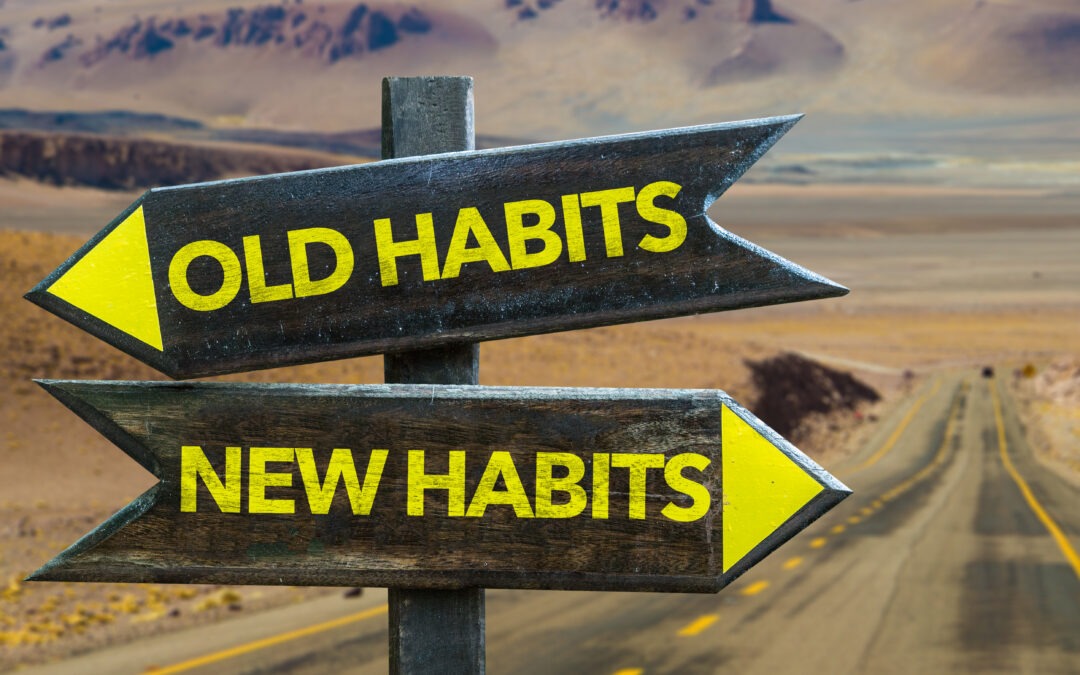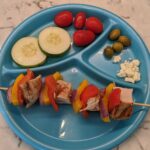
by Lori Vande Krol | May 20, 2021 | General Productivity, Planning
I had a blog ready to post this month but changed my mind at the last minute. The original blog I wrote focused on the importance of tying a clear vision, goals, and priorities to your daily to-do list. While I still think this is vital to making sure you are working on the right things each day, I decided to put that blog aside until next month. What has been coming up over and over the past week, that I felt more important to share this month, is the fact that no matter how much we plan and prepare, life often throws us curve balls. I’m sure no one would argue, especially in the environment of the past year. So, why even plan at all?
Why Plan?
Planning takes time. It requires difficult decisions. Good planning also creates the need to know your vision, goals, and priorities. Some people may determine the time and effort isn’t worth it…life doesn’t go according to plan anyway, right? But without a plan, without the knowledge and clarity of who you want to be, where you want to go, and how you will get there, the odds of reaching your goals are very low. Without a plan, the stress of the unexpected and the unknown is much higher. Without a plan, you are reacting to the needs and changes around you without intentional thought and value-based decisions.
With a plan in place, you gain more control over your days, your weeks, and your life. A plan puts systems and boundaries around the chaos. Barbara Hemphill, a mentor and leader in the productivity industry, says “Control what you can, so you can cope with what you can’t.” Planning provides you with this control. When the uncontrollable occurs and you are required to “pivot,” you can do so with a great deal more confidence that you are making the right choices. The stress and overwhelm that often results from change is much lower. Your original plan is adjusted, not forgotten, so you will continue to progress towards your vision for success.
Characteristics of a Good Plan
How do you create a plan that allows for the unexpected or for a change in direction? Following are the key features of a good plan:
- It ties to your life and career mission, vision, priorities, and long-term goals,
- It is written. Studies show writing something down makes it more likely to happen and allows for better processing, so pen to paper is ideal, but getting it out of your head and in digital form is better than not getting it down at all,
- It leaves room for flexibility. In other words, don’t plan every minute of every day.
- It is reviewed and reset regularly.
Stay tuned for next month’s blog as I dive deeper into #1 above which is the key to creating the best plan for YOU.
If you need some assistance with creating or adjusting your planning process, I’d love to help. Click to learn more about my Productivity Coaching plans.

by Lori Vande Krol | Sep 3, 2020 | Goals and Priorities, Habits, Motivation, Procrastination
I have something to confess – I have been a pretty bad cook most of my life. I don’t enjoy it and although I knew my family could be eating healthier, better-cooked meals, I’ve never really had an interest in learning – until recently. For a few reasons I’ll get into later, I decided I would challenge myself to learn how to feed my family in a “cleaner” way. Questions that crossed my mind were: “Where do I start? Do I have the right equipment and tools? Where do I get my groceries? How do I know what “eating clean” means? Will the family like the meals? How much time will it take? Will it even help? How can I change habits after so many years of doing it a different way?” There were a lot of unknowns for me and it was a little scary getting started.
Below I share my process and how you can use this same process to change any habit. It’s never too late to learn and grow!
Know Your “Why” for a Habit Change
Sometimes the most difficult step in changing a habit is deciding to do so. In her book Better Than Before, Gretchen Rubin states “A habit requires no decision from me, because I’ve already decided” (Rubin, 2015, p. 5). But even if you have made the tough decision to work on a habit, change is hard. It’s easy to quit. Things often get harder before they get easier. That is why it is important to be clear about your “why” for learning something new or changing a habit. Your “why” needs to be important enough to drive you to start and to continue when things get rough, which I guarantee they will.
Recently in my work with a client, she shared how she had been struggling with changes in daily working habits. Some days were so mentally draining she would have to take a nap to keep going. We reviewed her “why” and decided she would post a photo or vision board near her desk that reminded her of it daily. Doing this helped her to make better choices, focus her work, and maintain energy to reach her goals.
I have several “whys” for changing the way that I shop, cook, and eat, a few of which include increased food sensitivities in the family, a need to eat well to support exercise and sports, setting a good example for my children to be as healthy as possible, and to challenge myself to learn something new during some Covid-19 related downtime. I was also motivated by the short time I had to put new habits in place before the inevitable craziness that comes with back-to-school activities. All of these “whys” were strong enough priorities to spur me into action and to keep me going on the toughest days.
Research and Find the Best Tools to Support Your Habit
Before choosing the right tools to support your habit, it’s important to be clear on your vision for success and what is needed to help you get there. Will your new habit require enhancements to your current tools and systems or the need for something new? For example, if you are wanting to exercise at home regularly, what type of exercise will help you reach your goals? Do you have the right equipment available?
Or maybe you have decided to create a better habit of planning and scheduling your week. Do you prefer doing so in a paper or digital format? What features does your tool or process need to offer the best chance at success? It is important to analyze your needs and preferences before deciding on the tools that will best support your new habit.
I knew I didn’t have the systems, tools, or knowledge to change our cooking and eating habits on my own. If I was going to be successful, I needed to research and educate myself. I started by Googling “clean eating for families” and reached out to an exercise group I belong to. My research led me to Momables.com and the 30-Day Family KickStart program, which is a 4-week sugar-free, gluten-free, and dairy-free (optional) clean eating program. Momables provided me with weekly menus, shopping lists, and preparation tips. In addition, the program suggested equipment and tools that would support my new habit as well as general education about clean eating.
Find Support and Accountability to Reach your Goals
Creating new habits can be lonely without the right people to support and provide you with accountability and motivation. I found this in a few ways:
 (1) I ensured my family was on board with the new eating plan. If I didn’t have their support, it would not have worked.
(1) I ensured my family was on board with the new eating plan. If I didn’t have their support, it would not have worked.
(2) The creator of Momables, Laura Fuentes, reached out to let me know she was available for any support needed. Her regular email communications also kept me on track and motivated me to continue.
(3) The exercise group I belong to often discusses the need for clean eating to support any training or workouts. Hearing others’ challenges and successes provided motivation when things were hard.
Who can provide you with the support, motivation, knowledge, and accountability you need to succeed in your journey to learn, grow, and develop new habits?
Celebrate and Maintain Your Success
Once you have reached your goal, it is important to recognize it. Celebrate your accomplishment, and then determine how you will maintain your success. My family and I planned two celebrations during our 4-week challenge – after two weeks, we enjoyed s’mores by the fire as a “cheat” night. After we completed the full plan, we celebrated with a trip to the local ice cream shop. Knowing we had these milestones scheduled – that we would be able to enjoy a sugary treat soon – helped to keep us on track the rest of the time.
 Now that we have completed the 4-week kickstart program, we have set a goal to maintain an “80%” clean-eating habit. With the help of a weekly dinner plan from Momables, I now have the knowledge, tools, and resources to continue this new lifestyle. We know we won’t be perfect and I would be crazy to think we are “cured” from sugary foods for good, but we have created healthier habits that we will be able to maintain going forward.
Now that we have completed the 4-week kickstart program, we have set a goal to maintain an “80%” clean-eating habit. With the help of a weekly dinner plan from Momables, I now have the knowledge, tools, and resources to continue this new lifestyle. We know we won’t be perfect and I would be crazy to think we are “cured” from sugary foods for good, but we have created healthier habits that we will be able to maintain going forward.
Depending on the habit or change you work to develop, you may not be perfect all of the time and that’s okay. What is important is that you have systems in place to maintain what you have started and can get back on track quickly and easily. Don’t be too hard on yourself and be sure to celebrate the wins.
A Process for Changing or Forming a Habit
After 20 years of the excuses “I hate to cook” or “I don’t know how to cook” as a reason for not learning how to do better, I am proof that it is never too late to learn and change. The techniques and knowledge I gained over those 4 weeks have provided me the basis I need to continue with better habits for myself and my family. Whatever it is you feel you could do better, decide to do it, and then follow this process for success:
- Know your “why”
- Research and find the best tools
- Find support and accountability
- Celebrate and maintain your success
Please share your goals and progress. And if you need assistance with the process, don’t hesitate to reach out for coaching support.
Learn more about Life Made Simple’s Productivity Coaching Plans.
Sources:
Rubin, Gretchen. Better Than Before. New York: Broadway Books, 2015. Print. p. 5.
Momables. www.Momables.com/. Accessed August 2020.




 Now that we have completed the 4-week kickstart program, we have set a goal to maintain an “80%” clean-eating habit. With the help of a weekly dinner plan from Momables, I now have the knowledge, tools, and resources to continue this new lifestyle. We know we won’t be perfect and I would be crazy to think we are “cured” from sugary foods for good, but we have created healthier habits that we will be able to maintain going forward.
Now that we have completed the 4-week kickstart program, we have set a goal to maintain an “80%” clean-eating habit. With the help of a weekly dinner plan from Momables, I now have the knowledge, tools, and resources to continue this new lifestyle. We know we won’t be perfect and I would be crazy to think we are “cured” from sugary foods for good, but we have created healthier habits that we will be able to maintain going forward.
Recent Comments